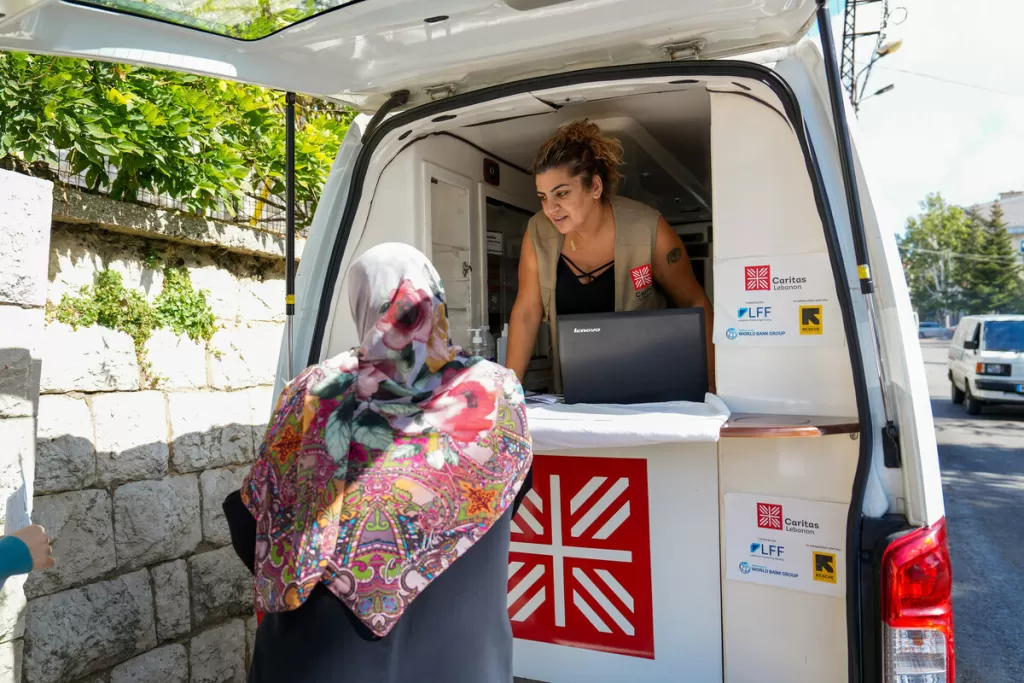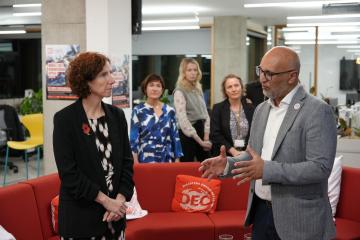Our five-year strategy
In 2024 the DEC embarked on a new five-year strategy. Our core mission remains the same: to raise funds to save, protect, and rebuild the lives of people impacted by major disasters overseas.
Working with our member charities and the Rapid Response Network, our activities are focused on four strategic pillars. Pillar 3 is focused on driving change in the humanitarian sector and increase our impact.
Driving change
The DEC has a unique role in how we can drive real change within the humanitarian sector and increase collective impact through our member charities and their local and national partners.
During this strategic period we are focusing specifically on:
- Harnessing our collective impact
- Influencing the sector
- Exploring and strengthening our climate change and protracted crisis response
- Supporting a shift of power
Harnessing our collective impact
During the Ukraine Humanitarian and Turkey-Syria Earthquake appeals, the DEC established collective initiative funding streams to support and incentivise innovative, joint programming among our member charities to increase the impact of DEC funds.
In the year ahead, we will continue to invest in innovation and collaborative projects by establishing dedicated funds in the Middle East Humanitarian and Myanmar Earthquake appeals.
This year our accountability framework was reinforced through the membership review which takes place every three years and checks each member against the DEC’s membership criteria and commitments, complemented by recognised external standards.
Influencing the sector
The humanitarian sector is constantly evolving and looking for ways to improve through better quality and more accountable responses to crises. As a funder, the DEC has multiple responsibilities in this area, including modelling and facilitating better ways of working within the sector.
In 2024 one of the findings that emerged from the strategy review was that flexible approaches to funding by the DEC are widely seen as positive by our member charities.
Our Flexible Funding study reviews the extent to which the DEC’s approach to funding is flexible, explores what the concepts of flexible and adaptive funding mean to the DEC and its member charities, and understands some of the effects and changes that this brings about.
Responding to climate change and protracted crises
The DEC monitors a number of disasters that have a devastating impact on local communities but do not meet our criteria for launching an appeal. We have a strategic commitment to explore effective ways to drive impact, awareness and funds to these humanitarian emergencies.
In 2025/26 we will continue to develop our response to climate change and protracted crises by strengthening programming and exploring different opportunities for funding.
Supporting a shift of power
Across the humanitarian sector significant efforts are being made to showcase the fact that local and national actors are often the first responders to an emergency, and that they have a leadership role. ‘Localisation’ refers to the process of shifting power, decision-making and resources to local and national organisations engaged in humanitarian and development efforts.
Although DEC member charities are responsible for implementing measures that aid and enhance locally-led humanitarian action, the DEC recognises our crucial role as a funder.
Given the size of our membership and our approach to providing multi-year flexible funding, we are in a strong position to create a step-change in shifting the power.
Over the course of this year, the DEC has been working to adopt recommendations from the study. In 2025/26 the DEC will continue to support member charities to accelerate locally led humanitarian responses in DEC funded programmes.




